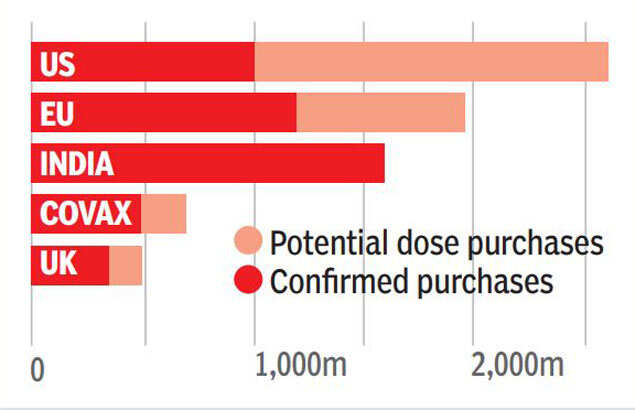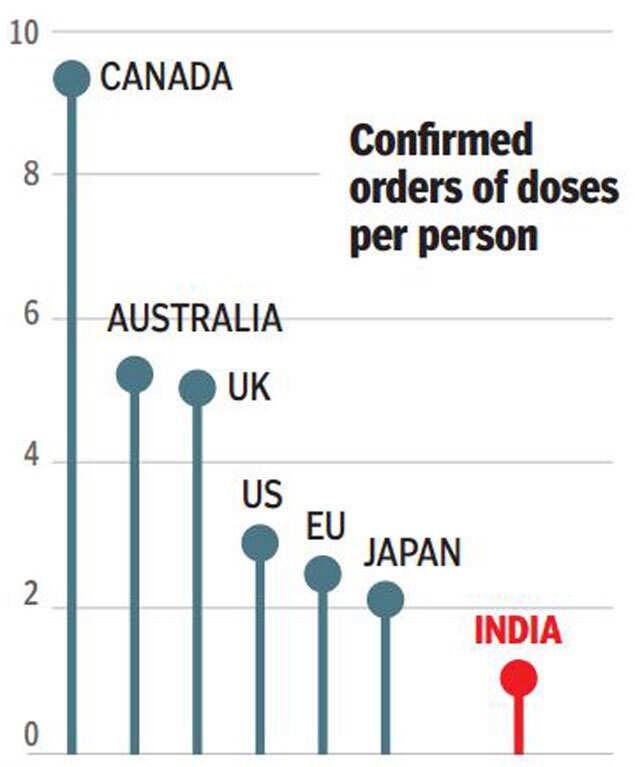
The good results of the Pfizer vaccine have spread joy throughout the world. Some other vaccines also look promising, and large-scale vaccination of at least health workers and others at risk could begin soon. However, experts say it could take four years to immunize the world against the coronavirus. This is because rich countries have already reserved billions of doses, equivalent to more than a year’s supply, of vaccines for their citizens, leaving little for the world’s poor.



- The US alone has bought almost a sixth of the world’s supply, and Canada has obtained enough doses to inoculate every citizen nine times. With 1.6 billion doses, India is the first prospective buyer, but its average is just over 1 dose per person.
- The rush to stockpile vaccines has left many low- and middle-income countries unable to immunize their entire population until 2024.

6.4 billion reserved doses
- Countries are hedging their bets by buying billions of doses of the vaccines that undergo advanced testing. Of the 9.6 billion doses that have been reserved, 6.4 billion are confirmed purchases and 3.2 billion are in negotiation or are part of an option to expand an existing agreement.

- But with manufacturing capacity limits, some countries, mainly low- and middle-income countries, may not have enough doses to immunize their entire population by 2024. High-income countries have 3.4 billion doses in confirmed deals But no low-income country has signed direct agreements to insure vaccines, according to a Duke University database.
- To help low- and middle-income countries immunize at least 20% of their population, a coalition of international agencies and non-profit organizations, called the Covid-19 Vaccines Global Access Facility (Covax), is raising funds to ensure 2 billion doses by the end of 2021. Many governments will depend entirely on Covax to immunize their people. More than 150 countries have pledged to contribute.
Nine doses for every Canadian

- Many countries will fight to vaccinate anyone beyond frontline healthcare workers and some of their most vulnerable citizens for years to come. But some rich countries have bought enough doses in advance to immunize their citizens multiple times.
- For example, Canada has purchased 358 million doses for its 38 million citizens. There are nine doses per person. You could still buy another 56 million doses to take more than 10 doses per person.
- But much of the world’s population will likely struggle to receive even a single dose for months, if not years, after the first vaccines are approved and commercially available.
- Some middle-income countries like India and Brazil are developing their own vaccines, although they are still in the early stages of trials. Should India’s vaccines, for example, be successful, global supply will get a boost and prices will remain relatively low.
Source: Duke Global Health Innovation Center, Economist, media
.